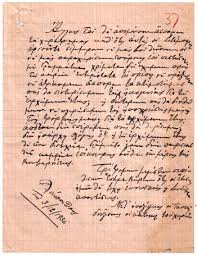
Although rare, mutual wills are extremely problematic in estate matters in that typically, a married couple, both sign the same will which in effect creates a binding contract on each other not to change the contents of the will, without the express permission of the other party. A breach of this can give rise to a claim of constructive trust.
As such mutual wills ( as opposed to mirror wills that most couples get where they each have their own will) should be avoided.
Most of the cases define a mutual will as an agreement not to revoke the will, as opposed to alter the will, as is our case. The word alter is defined in Black’s dictionary as to modify or vary in some degree. The word revoke means to destroy or make void an act or document. I note however that in Williams, Wills (1980) stated under agreements relating to mutual wills-” such agreements vary according to the circumstances of particular cases and the wishes of the parties. The wills may be executed upon an agreement that they shall not be revoked or altered”- The case law also states that there must be clear and unequivocal evidence of an agreement not to revoke the wills.
The use of the word alter, as opposed to revoke may possibly affect the outcome, but given that equitable principles are involved, it is unlikely. Re Kerr (1948) 3 DLR 668 is one of the leading cases and states that regardless of its precise terms, a joint will may be evidence of a contract not to revoke.
There is a maxim that equity looks on that as done which ought to have been done, or which has been agreed or directed to be done.
The meaning of this maxim is that equity will treat the subject matter of a contract, as to its consequences and incidents, in the same manner as if the act contemplated by the parties had been completely executed and will act in favor of those persons entitled to the performance of the contract so that no party to the agreement shall suffer from the delay and laches of the defaulter.
Equity has even imposed a constructive trust where the husband and wife agreed not to revoke their mutual wills, even though the surviving spouse died leaving assets only in joint tenancy and not in his estate (Sanderson v University of Manitoba BCCA (1998) 7 WWR 83 ). In other words, it was not dependent on leaving assets in the estate for a constructive trust to be imposed. Sanderson discusses how equity considers it a fraud upon the deceased, who has acted upon and relied upon the mutually binding nature of the agreement, for the survivor to change the will and break the agreement. As the deceased cannot intervene to enforce the obligation, equity will enforce the survivor’s obligation despite the survivor’s subsequent intentions.”
There is a question as to when the law will impose a constructive trust and what property becomes subject to the trust- is it that the date the agreement was signed, the date that the first party dies, or the date that the surviving spouse dies. Donovan Waters cites the decision of Dufour v Pereira (1769) 1 Dick,419 and states that “when the first testator dies, the contract is executed and the court will not permit the survivor to break the contract.”
The decision of Birmingham v. Renfrew (1937) 57 CLR 666 at 689 discusses the situation where the surviving spouse is enabled during his lifetime to deal as absolute owner of the property passing under the will of the party first dying, and to enjoy for his own benefit the full ownership, so that he may convert and expand the proceeds, if he chooses. But when he dies he is to bequeath what is left in his estate in the manner agreed upon. This leaves the question open as to whether the survivor can defeat the purpose of the agreement by making inter vivos dispositions while alive and only leave any residue of his estate to the beneficiaries of the mutual will.
Birmingham v Renfrew is an Australian case, and it may well be that equity will not allow a deed all of the subject property to his daughter so as to defeat the equities of the mutual will.
Re Kerr (1948) 3 DLR 668 states at paragraph 24 that Dufour v Pereira was distinguished In re Oldham: Haldwen v Myles (1925( CH 75. The real point of distinction is to be found in the judgment of Astbury J. At the. 88, where he states:
“Firstly, I think a very great difference between Dufour v Periera and the present case is that in Dufour, the capital of the trust property was secured in fact by the life interest only been given to the survivor, whereas in the present case, the survivor is s. given the whole estate absolutely, and could, if so minded, dispose of the whole property inter vivos.”
At paragraph 25, the court continues ” It should also be mentioned that in RE Oldham : Hadwen v Myles there were two separate documents and the mutual wills were not embodied in the one instrument, as in the case at bar.
The majority of the Supreme court of Canada In Pratt v Johnson (1959) SCR 102 agreed that the surviving spouse can do as he or she pleased with the property during their lifetime, but must dispose by will of what remained by the terms of the agreement. The court found that there was an agreement not to revoke the will, but then said that it was not a matter of the construction of the joint will, but of the effect of the agreement. Their interpretation was that the wife was bound by the agreement to leave whatever property she still held at the time of her death to the joint will remaindermen.




